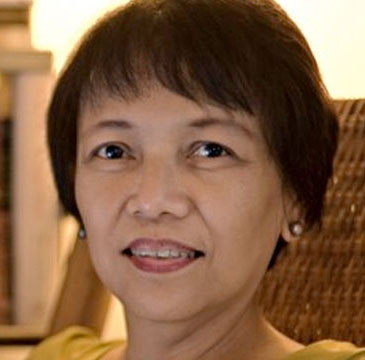SUMMARY
This is AI generated summarization, which may have errors. For context, always refer to the full article.

Behind each of the winning candidate in the senatorial race is a story of our elections, some old, in fact, they’re repeats of the past. The few new narratives have to do with changing technology, both in the media and in the automated polls.
Although mid-term polls are rare, as historian Manuel Quezon III has reminded us—the 1995 elections were the first a presidency had experienced since 1971 and we’ve had 2 since then (2007 under President Gloria Arroyo and 2013 under President Benigno Aquino III)—patterns similar to regular elections emerge.
Here are my takeaways:
1. A superstar surname is a sure ticket to politics.
The resounding victory of Grace Poe, who made it to the top slot and bested two-time frontrunner Loren Legarda, affirms old realities. Joseph “Erap” Estrada epitomized this when he won as president in 1998.
In the Senate, Lito Lapid, Ramon Revilla Jr, and Jinggoy Estrada stand out as examples. In local politics, Vilma Santos is an easy pick. Of course, Erap is another, who, despite his fading luster, won a bruising battle as mayor of Manila.
2. The popular will of the electorate continues to show a sense of fairness.
Poe has acknowledged that part of the reason she won was that the public wanted to vindicate her father, the late Fernando Poe Jr, who, it is widely believed, was cheated in his presidential bid in 2004.
“They wanted to rectify a wrong,” Jose Almonte, former national security adviser and strategist of President Fidel Ramos, explains.
This could also be said for Aquilino “Koko” Pimentel III, who is set to serve a second term in the Senate. He was deprived of a full first term because he was cheated.
Similarly, Antonio Trillanes’ surprise win in the Senate in 2007 could be attributed to this collective sense. His victory was seen as a protest vote against the Arroyo administration. Trillanes led a failed mutiny in the military, triggered by corruption scandals hounding then President Arroyo.
“People took it [corruption] as an offense, so they made Trillanes senator,” Almonte says.
3. Families have conferred on themselves a franchise on politics.
Nancy Binay’s expected victory shows a persistent and disturbing phenomenon in our political culture. What should be a public sphere where people could compete on merit has become a space limited to those with the right political pedigree and resources.
The Binays, for sure, are not alone, but they dramatize the power of blood ties. The patriarch, Jejomar, is vice president. Daughter Abigail is in Congress, son JunJun is Makati mayor, and now, Nancy is senator.
Alan Peter Cayetano and JV Ejercito will join their siblings in the Senate, Pia Cayetano and Jinggoy Estrada.
Sonny Angara will be the second-generation Angara in the Senate while his aunt, Bellaflor Angara-Castillo, will take his place in the House of Representatives.
Bam Aquino is the 6th Aquino to sit in the Senate and, of course, his famous first cousin is no less than the president of the country.
Cynthia Villar represents continuity of the Villar family in the Senate. Her son Mark was also re-elected congressman.
4. Comelec lost focus and tried to be all things to all people.
The Commission on Elections overreached in managing the elections, trying to provide solutions to all problems, that it failed to focus on its one big responsibility: to meet all the logistical requirements of running an automated election and make it as credible as possible.
Sixto Brillantes Jr wanted to be the Superman of clean elections but he forgot that this wasn’t just Comelec’s job. He and his team unreasonably extended the liquor ban and imposed a money ban (both of which the Supreme Court rejected), taking energy and focus away from the essentials. Brillantes was fighting unnecessary battles.
In 2010, remember how we were all hyper-anxious about the automated polls? Election watchdogs demanded a lot from the Comelec, from technical information to transparency in operations. The media and the public asked tough questions. The outcome? We knew the results fast. In 12 hours, we had close to 80% of the total vote.
Results initially stalled at 69% after the first 12-13 hours. It appears that the tech guys were not easily accessible as it took hours to fix the glitches. A number of the regions that transmitted like a turtle did much better in 2010.
Questions abound: since the PCOS machines were mothballed for 3 years, did the Comelec do a thorough once-over before the elections, making sure that the machines worked? Or was the Comelec complacent this time, after the success of 2010?
After the dust settles, the first item on the agenda of the Comelec should be to prepare for the 2016 elections, that is, after learning from the mistakes of 2013. – Rappler.com
Add a comment
How does this make you feel?
There are no comments yet. Add your comment to start the conversation.